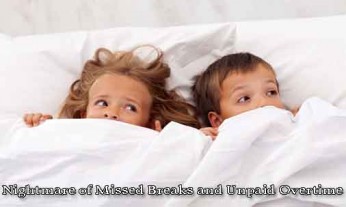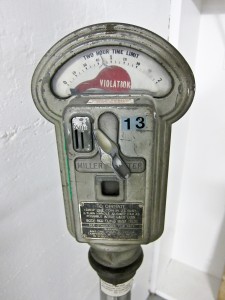 The nightmare of missed breaks and unpaid overtime. A key and trusted employee gives notice. He was well liked and you give him a special going away party.
The nightmare of missed breaks and unpaid overtime. A key and trusted employee gives notice. He was well liked and you give him a special going away party.
Ten months later that key and trusted employee files an overtime and missed breaks violation complaint against you with the Labor Board. At first you are shocked because you really liked him and he left on good terms! He never said a word to you about any of this. You wonder, when and how could this have happened? Why was this was never brought to your attention during all his years of employment?
Missed Breaks and Unpaid Overtime
You review his time cards. They show no missed breaks or unpaid overtime and you continue to believe that this must be some sort of mistake. All you have to do is show the employee’s time cards to the Labor Board and all this will be cleared up, right?
You attend the Labor Board hearing, and show the commissioner your records. At this time that key and well liked employee produces another set of time sheets. A “secret” set of time sheets personally kept for years by the employee, showing that he worked a lot more that what he reported on his official time cards. This secret set of time cards documented hours and hours of “missed overtime and breaks” over a period of, well years – he even shows overtime for work he says he performed late at night when your office was closed. All you can think is what is going on? At this point, you go completely numb.
The employee tells the commissioner that he wanted to do a really good job but there wasn’t enough time in the day to keep up without working late at night or from home and tells the commissioner that you as his employer “should have known this.” You can’t remember ever asking your ex-employee to work late at night or from home (off the clock) ever. What was this extra work? What did he do for all those years of overtime?
How will the Labor Board Rule?
More often than not the Labor Board will side with the employee. It is imperative that employers seek the counsel of an experienced Labor Law attorney prior to attending a Labor Board hearing.
Employer’s Case: The employer believed that the company time cards were an accurate record of the the time worked and is therefore completely caught off guard by the extra set of time sheets produced. It must be some kind of mistake. But, at the Labor Board hearing the employee testifies that he never told his employer about the “secret” overtime he worked because he wanted to do a good job, to get everything done, and he didn’t want to lose his job to an assistant who was pining for the title.
Neither the employer nor the employee could document the actual work produced during these years of “overtime” but the Labor Board commissioner was satisfied that in spite of this lack of concrete evidence, the employee seemed earnest and appears sincere in his belief that he did something beneficial for the employer.
Department of Labor Decision: Employee was granted the full amount of his claim, with all penalties and interest. In addition the employer was required to pay back taxes to the IRS for these wages. Further, the Department of Labor included even more interest and penalties due to the employee wait time. This exacerbated the cost to the employer even further, escalating the dollars in interest and penalties (per day for a 30 day period).
BECK LAW P.C. SUGGESTED TIPS TO SECURE EMPLOYEE TIME CARD ACCURACY
It is essential that all employers:
- Include a mandatory Declaration Under Penalty of Perjury on each time card, signed by the employee, that clearly states the employee swears that the time submitted on the card is accurate, honest and includes ALL time worked for that pay period
- Mandate in your Policy Manual that non-exempt employees with pre-approved overtime must clock in and clock out, remotely, via e-mail prior to commencing and ending any work performed.
- Ensure that time sheets are legible, professional and clearly written
- Ensure employees initial all notes and changes and provide reasons and copies of email approvals for overtime, late, sick and vacation days, in their own handwriting
- Outline Employee Manuals with language that non-exempt employees are never permitted to work “off clock” for any reason whatsoever, unless pre-approved by management in writing
- Ensure all non-exempt employees are not permitted to sit at their desks during breaks and/or meals
- Train management to post break/meal schedules in a public work area and to monitor them accordingly, and ensure breaks and meals are taken timely and in a manner that complies with current labor regulations
- Provide recurrent reminders to management and employees to never talk about work to an employee that is on a break or meal period
- Provide a separate defined space for employees to take breaks and meals that is free from work
- Install time clocks within sight of management to monitor that employees clock in and out in a timely manner and do not clock in and out for another employee
- Keep up to date employee records that are stored in a locked file or a password protected computer file
- Seek a professional employment/labor law attorney, such as Beck Law P.C., to prepare and annually update all employee manuals, policies, procedures and employment documents

